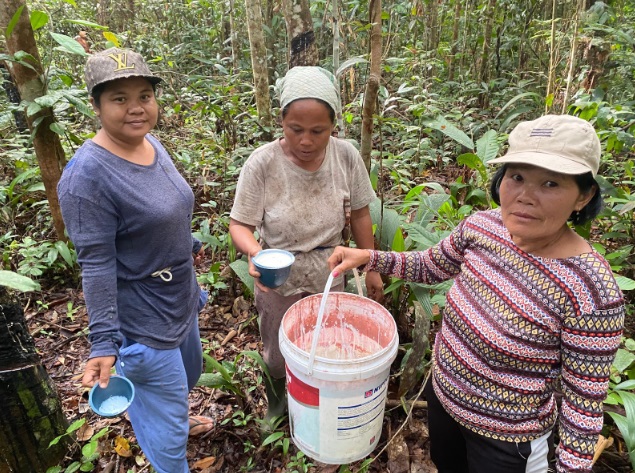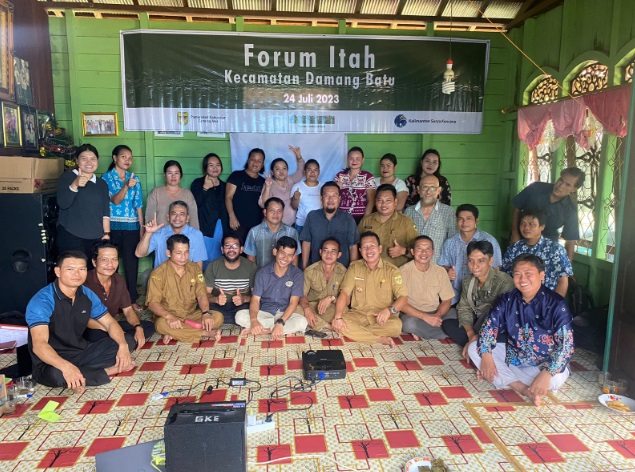Producing Higher Quality Rubber
Rubber tapping is the main livelihood for many villages in Central Kalimantan. However, in the villages where YTS works, there is lack in the capacity of the human resources. This year has seen a substantial amount of work involving rubber farming. From previous meetings held in the project villages, YTS identified the potential of the rubber market and what action can be taken to improve it. Since May 2023, YTS conducted rubber training in 2 villages in Gunung Mas, 2 in Katingan and 1 in Pulang Pisau. The rubber farmers there usually soak the latex in water before selling it to collectors. This is called bokar basah (wet rubber). They’ve done it this way for as long as they can remember. They don’t know that if the latex is properly dried in a shelter, shaded from the sun and rain, the dry rubber content (DRC) will increase and therefore increase the selling price. This method creates a product called bokar bersih (dry rubber). The main focus of the rubber training was to introduce this method to them. In most of the villages where we did the training, only a handful of rubber tappers were willing to apply it. But the results don’t lie. The bokar bersih sold for Rp12,000 – 13,000, double that of the bokar basah. YTS continues to conduct training in other villages and guiding them every step of the way, from processing to sales.

